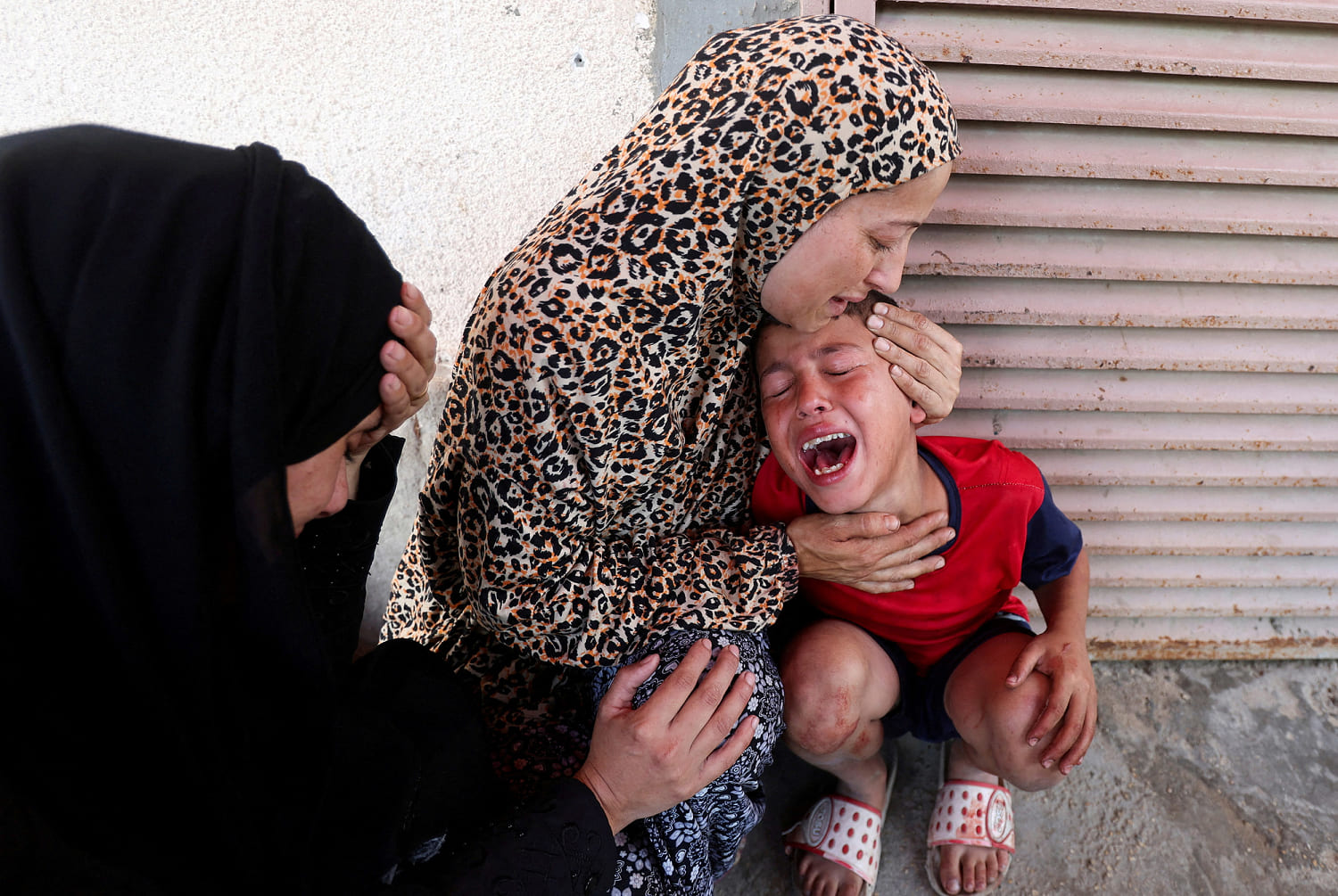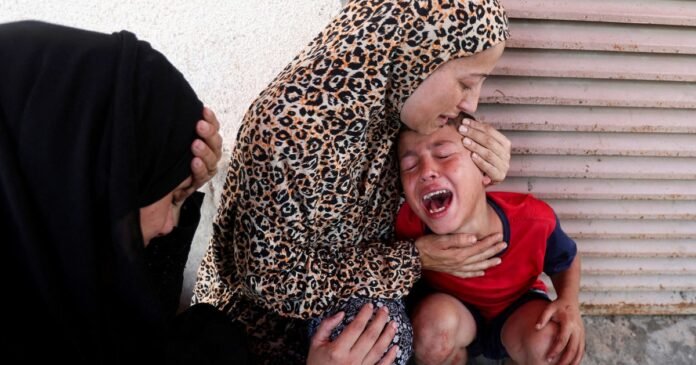
European officials reached a new deal with Israel to allow desperately needed food and fuel into Gaza, the European Union’s foreign policy chief said Thursday, hours after an Israeli airstrike killed 15 people, including 10 children, waiting for help outside a medical clinic.
The children’s deaths drew outrage from humanitarian groups even as Israel allowed the first delivery of fuel to Gaza in more than four months, though still less than a day’s supply, according to the United Nations.
“The killing of families trying to access life-saving aid is unconscionable,” UNICEF’s chief, Catherine Russell, said. “These were mothers seeking a lifeline for their children after months of hunger and desperation.”
The Israeli military said it was targeting a militant when it struck near the clinic.
Security camera footage outside the clinic in the central Gaza city of Deir al Balah showed about a dozen people squatting in front of the clinic when a projectile explodes a few meters (yards) away, leaving bodies scattered.
Meanwhile, Israeli Prime Minister Benjamin Netanyahu prepared to leave Washington after meetings with President Donald Trump, apparently without finalizing a temporary ceasefire advocated by the White House.
The deal announced by European officials could result in “more crossings open, aid and food trucks entering Gaza, repair of vital infrastructure and protection of aid workers,” said Kaja Kallas, the 27-member EU’s top diplomat.
“We count on Israel to implement every measure agreed,” she said in a post on social media.
Aid groups say Israeli military restrictions and recurring violence have made it difficult to deliver assistance in Gaza even after Israel eased its 2 1/2 month total blockade in May. Experts have warned the strip is at risk of famine, 21 months into the Israel-Hamas war.
Kallas said the deal would reactivate aid corridors from Jordan and Egypt and reopen community bakeries and kitchens across Gaza.
She said measures would be taken to prevent the militant Hamas group from diverting aid. Israel has long accused Hamas of stealing aid and selling it to finance militant activities. The U.N. says there is no evidence for widespread diversion.
Israeli Foreign Minister Gideon Saar acknowledged the deal while at a conference in Vienna, saying it followed “our dialogue with the EU” and that it includes “more trucks, more crossings and more routes for the humanitarian efforts.”
Neither Saar nor Kallas said whether the aid would go through the U.N.-run system or an alternative, U.S.- and Israeli-backed mechanism that has been marred by violence and controversy.
The U.N. said Israel had permitted a team to bring 75,000 liters of fuel into Gaza, the first delivery allowed in 130 days. U.N. spokesman Stephane Dujarric warned it wasn’t enough to cover a single day’s energy needs in the territory and that services would shut down without more shipments.





